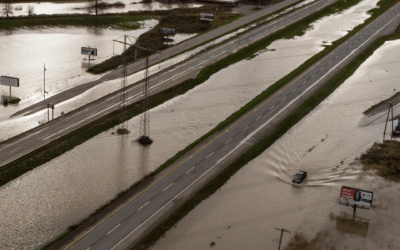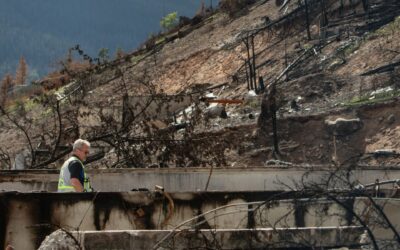Floods, wildfires, heat waves and droughts—they’re happening more and more often, and every time they do, we inevitably ask, “was it caused by climate change?” It turns out, though, that this is the wrong question—akin to asking during Major League Baseball’s steroids era whether a player’s fortieth home run was caused by performance-enhancing drugs. In both cases, the focus on any single event misses the larger point: something seems to be juicing the stats, turning incidents that were once extraordinary into the new normal.
As recently as about 15 years ago, scientists thought it was impossible to determine whether a single weather-related disaster was the result of human-caused climate change. Because the physics behind any weather event is so complex, they thought, it’s just too difficult to tease out the part that climate change plays in a single flood, heat wave, wildfire or drought. However, in 2004, researchers discovered they could analyze weather data and perform computer simulations of climate change to determine how much global warming—the “steroid” acting on our naturally varying climate—is changing the probability of particular extreme weather events. So instead of asking whether an individual extreme heat wave was caused by climate change, they examine the extent to which climate change has made it more likely such a heat event will occur. The answer they get is not that climate change did or did not cause the heat wave; instead, it comes in the form, “climate change made the heat wave 10 times more likely”, or “90 per cent of the chance that the heat wave occurred is due to climate change.”
Many people across Canada have been asking whether the recent record-breaking heat in the West, and the hundreds of wildfires that followed, can be attributed to climate change. A few weeks ago, researchers had already highlighted that the climate conditions in the Northern hemisphere that locked the heat dome in place over much of Western North America for several days are occurring more often under climate change. And a group of researchers who do “rapid attribution” analysis of extreme weather events have just confirmed that the extreme heat would have been virtually impossible without the influence of human-caused climate change.
Previous attribution studies have shown that the fingerprints of climate change can be found on many of the most devastating weather-related disasters in Canada over the past decade. Some key findings include the following:
- The 2016 Fort McMurray wildfire was 1.5 to six times more likely because of climate change;
- The extreme British Columbia wildfire season of 2017 was made two to four times more likely, and the area burned was increased by a factor of seven to 11;
- The heatwave of 2018 that caused at least 74 deaths in Quebec almost certainly could not have happened in the absence of climate change;
- The rainfall behind the 2013 Alberta floods was made more likely by climate change;
- The extreme western Canada drought of 2015 was partly caused by warm late winter temperatures and reduction in snowpack that were likely caused by climate change.
Most studies that examine the impacts of climate change in Canada—including some published by the Climate Institute—look at long-term impacts that might occur 30, 50 or even 80 years from now. This is important work, because we need to understand what the future may hold so that we can prepare. However, projections of impacts that are decades away don’t tend to inspire immediate action. Attribution science can play a vital role in illustrating that climate change is not a distant phenomenon—it is already here, now. It highlights that we can’t waste any time in responding. That means both immediately and dramatically reducing emissions to minimize additional global warming, and preparing for and building resilience to the extreme future warming that’s already baked in because of past and present emissions.
Event attribution is now one of the fastest growing areas of climate science, and MIT Technology Review named climate change attribution one of its ten 2020 breakthrough technologies that will make a difference in solving important global problems. Scientists have now carried out more than 400 attribution studies—finding in 70 per cent of cases that extreme weather events and trends were made more likely or more severe by anthropogenic climate change.
So, can extreme weather events be linked to climate change? Yes, they can. Attribution science has already shown the force of climate change in fueling Canada’s most recent extreme weather. And it should be just the fuel we need to invest without delay in reducing emissions and preparing for a warming world.








